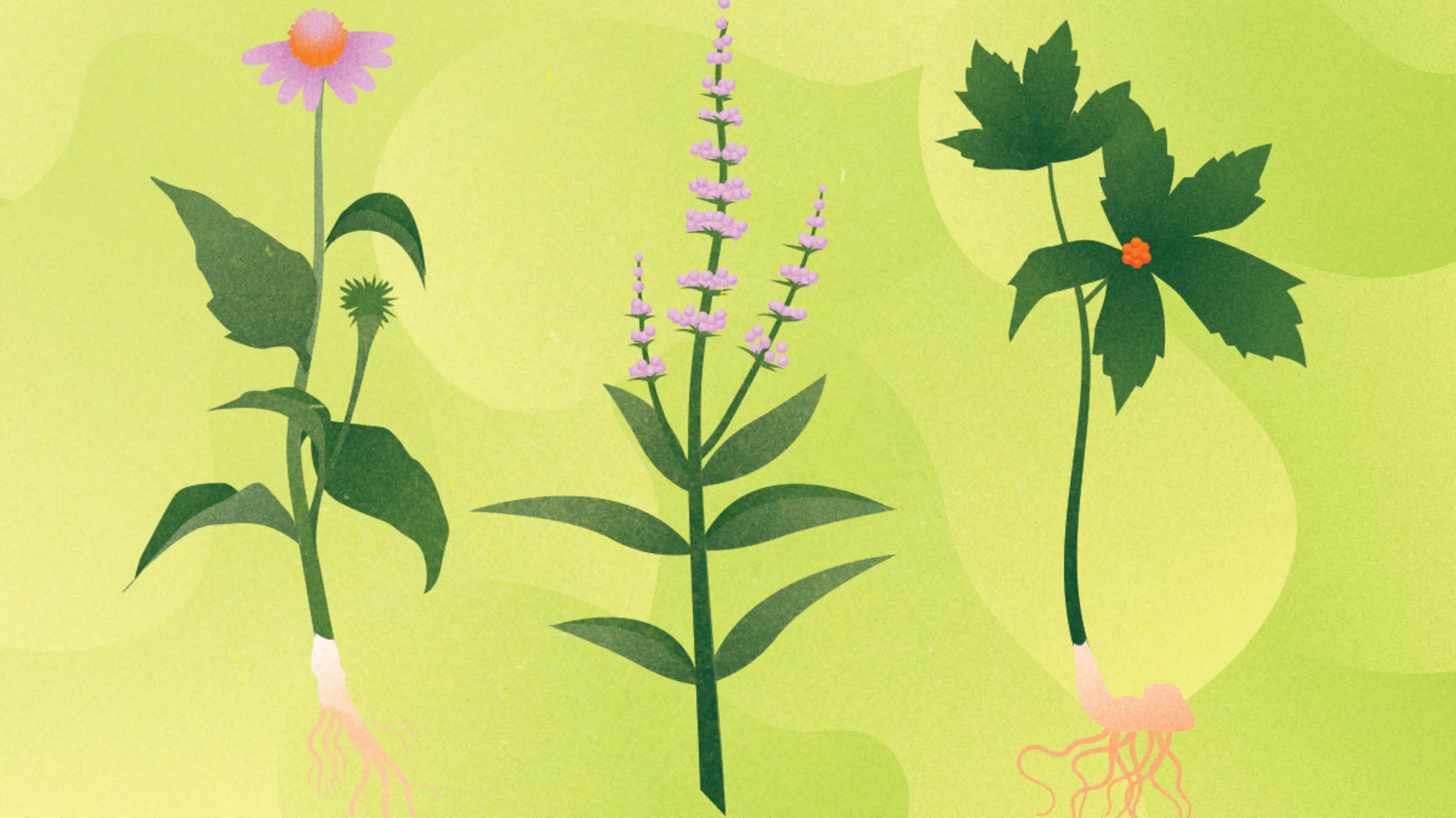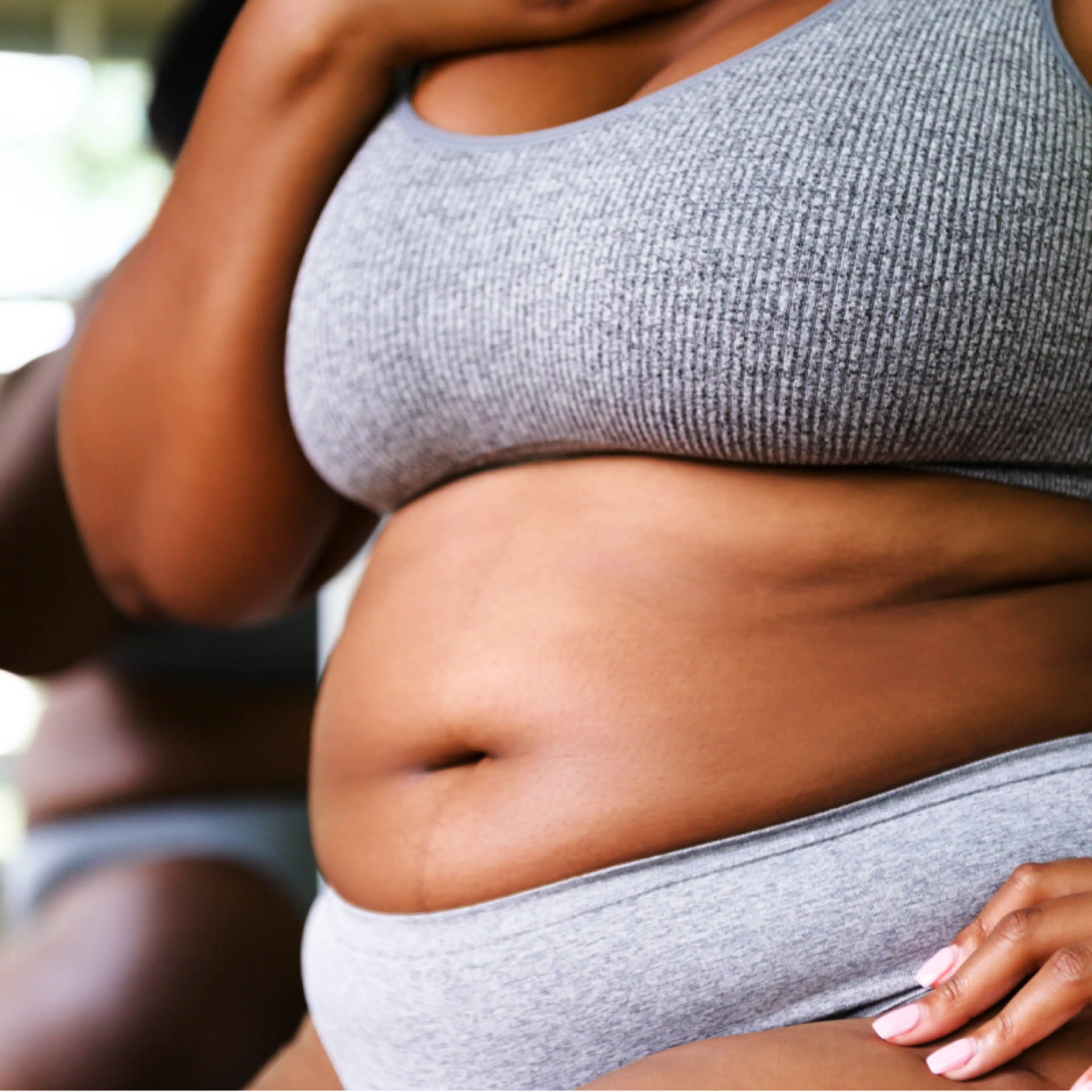If it’s taking longer than you expected to conceive, you’ll do anything you can to boost your fertility. Maybe you’re eating sunflower seeds by the handful, loading up on Omegas, and skipping that second glass of wine. You might prop your legs up on the wall after sex or take cough syrup because you heard it thins your cervical mucus (the research doesn’t support1 this last one so go easy with it, please).
While you may be tempted to reach for herbs or teas that you heard could be just the thing to help, it’s important to be aware that not all herbs are good for you during this time. The problem is, it’s not always clear which ones you should load up on and which you should stay away from.
“Many of these herbs can be used to treat hormonal imbalances that often accompany fertility challenges,” says Anna Bohnengel, MS, RD, LD, and founder of Fertility Nutritionist. “However, while they may, potentially, under the careful supervision of a licensed provider, offer some fertility benefits, they may also have scary potential side effects once [you’re] in the two-week wait.” For this reason, Bohnengel recommends that if you are using any of the herbs on this “no” list, you discontinue them when you hit the luteal phase of your menstrual cycle (the phase between when you ovulate and when your period is scheduled to start)
Read on to learn what herbs or teas you should avoid while trying to conceive. (Plus, a few recommendations for herbs that are safe and potentially beneficial to consume during this time.)
Herbs to Avoid While Trying to Conceive
St John's Wort
If you’ve ever sought out a natural mood booster, your Google search has likely landed on St. John’s Wort. St. John’s Wort is a “traditional Chinese medicine to treat depression and is found in many products advertising a mood uplift,” Bohnengel says.
While it has benefits for mental health, a few red flags pop up when it comes to fertility. “Although the research is minimal, a few studies have found that the active components in St. John's Wort can have toxic effects and may even cause spontaneous abortion (although the latter effects were not statistically significant). In animal studies, St John's Wort was shown to block conception by impairing the sperm's ability to penetrate the egg,” Bohnengel says.
While more research is needed, it’s recommended that you steer clear of St. John’s Wort2 during all stages of your pregnancy journey—while trying to conceive, pregnant, and breastfeeding. Another fun fact about St. John’s Wort that’s a bit counterintuitive: this herb can make birth control less effective3 , so you should also take precautions if you are on the supplement and don’t want to get pregnant.
Goldenseal
Goldenseal is an herb in the buttercup family that has anti-bacterial and immune-boosting properties. Bohengel says to look for it in products that claim to keep you from getting sick (like natural tinctures or supplements for colds).
The problem with goldenseal is that it also contains berberine, a natural chemical that can promote balanced blood sugar. “For women with PCOS, one of the leading causes of female infertility that is often characterized by poor blood sugar control, berberine is a common go-to herbal remedy,” Bohnengel says. While berberine can be used to improve fertility4 among women with PCOS, it's not considered safe once you do conceive as it may cause uterine contractions5 that could lead to miscarriage. Because of this, it’s recommended that you use caution with goldenseal when you are actively trying to get pregnant.
The problem with using herbs for conception and fertility is that there’s a two-week window where it’s impossible to know if you’ve become pregnant or not. For that reason, it’s best to exercise caution and avoid herbs that aren’t safe for pregnancy while you are trying to conceive. (You can find a list of herbs to avoid during pregnancy and lactation here.)
Black or Blue Cohosh
Black Cohosh is an herb native to North America that is often used to treat female hormone imbalances, especially those related to menopause, as well as uterine fibroids. Studies6 have found the herb to be effective at reducing hot flashes, anxiety, and vaginal dryness.
“Despite their use for treating female hormones, these cohoshes are not considered safe during pregnancy because they could stimulate uterine contractions, which could lead to miscarriage,” Bohnengel says. The same rule as goldenseal applies: because they may not be safe during the two-week window of early pregnancy, it’s recommended that you not use it while you’re actively trying to conceive.
Pennyroyal
“Pennyroyal is used as a natural bug-repellant and to encourage menstrual flow among women with a delayed period,” Bohnengel says. But like other herbs on the list, pennyroyal can also cause uterine contractions, leading to a risk of miscarriage. While pennyroyal is usually found as a topical application (ingesting pennyroyal can be toxic), the skin is another entry point into the body, so you want to make sure you scan the ingredient list before using any natural bug spray when you’re pregnant or trying to conceive.
Echinacea & Ginko
If you’re trying to conceive, hold off on the echinacea this cold season (and tell your husband or male partner to skip it too). An older study from 1999 showed that high concentrations of echinacea were damaging to both immature eggs and sperm. If you’ve taken some recently, don’t panic—it’s unlikely that a small amount would cause damage to reproductive cells. Gingko had a similar effect as echinacea, so cross that one off your list as well.
Adaptogens
Adaptogens are everywhere these days—in gummies, teas, and for sale at the counter of your yoga studio.
Adaptogens are “a class of herbs traditionally used in ayurvedic and Chinese medicines with increasing popularity for their purported benefit to ‘take the edge off’ when facing the demands of modern life,” Bohnengel says. The effect of adaptogens is cumulative, meaning you’re probably not going to instantly feel relaxed after popping an adaptogenic gummy. But over time as you continue taking them and they build up in your system, they can help condition your body to handle stress better.
“Ashwagandha is one example of an adaptogenic herb currently in the limelight that you'll find in all kinds of products—those purporting to reduce stress, improve sleep, boost immune health, and in many products claiming to enhance fertility for both men and women,” Bohnengel says.
She adds that while documented side effects of ashwagandha are minimal, the concern is that the effects have not been studied among pregnant people, and so they are not considered safe to take when pregnant. “While likely to be perfectly safe while TTC, once you hit the two-week wait when you could be pregnant, I recommend an abundance of caution and avoiding any herbs unless they are shown to be safe in clinical trials.”
Look for adaptogens in things like coffee replacement products or non-alcoholic “fun” drinks.
Are Any Herbs Safe While Trying to Conceive?
While more research is needed, raspberry leaf, often found in tea form, is sometimes said to strengthen the uterus.
While it is safe while trying to conceive, it should be used with caution, if at all, during early pregnancy. According to the American Pregnancy Association7 , “there is some controversy about whether [raspberry leaf] should be used throughout pregnancy or just in the second and third trimester, so many health care providers remain cautious and only recommend using it after the first trimester.”
Other common pregnancy-safe herbs and teas include peppermint (which is often a godsend for morning sickness), dandelion leaf, nettle leaf, alfalfa, chamomile, and oatstraw.
The Bottom Line
There are few things more difficult than seeing a negative pregnancy test month after month when all you want is the BFP. You want a baby, and if a tea or tincture can help, why not try it? Knowing the herbs that are not safe for TTC or those that should be avoided during the two-week wait can help you calm your nerves and feel confident that what you are doing and eating is only going to help you.
And if you happen to accidentally consume anything on the “no” list, don’t worry. A small quantity of any of these herbs is probably fine. The concern is if you are regularly consuming them, so consider it practice for pregnancy when inevitably you’ll eat a sneaky egg yolk (damn hollandaise) and panic for several hours before you forget all about it.












